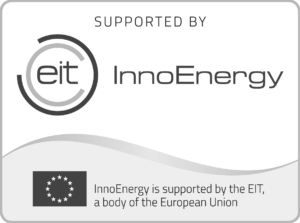12.09.2018
Novartis: embracing digital innovation to provide beyond-the-pill service
In an outcome-focused world, pharma must do more than simply develop pills and medicines. Novartis is at the forefront of digital innovation and has collaborated with multiple digital health start-ups to provide beyond-the-pill services to their customers.
“Thanks to digital innovation, the traditional roles and dynamics of healthcare stakeholders have changed fundamentally,” says Jürgen Kukk, Country Manager Estonia of Novartis Pharma Services Inc. Healthcare is transforming from a provider-driven market to a patient-centric health ecosystem, and it is crucial for pharma companies to rede-fine themselves as solutions companies, not purely as asset companies. “In an outcome-focused world, pharma must do more than simply develop pills and medicines. It must also ensure that these products deliver their promises. The term “beyond-the-pill service” is being used, which means that through the use of big data, sensors and artificial intelligence it is possible to provide precise, real-time monitoring of patients,” he explains.
In an outcome-focused world, pharma must do more than simply develop pills and medicines.
In recent years, pharma has significantly prioritized digital innovation, and the most effective way for pharmaceutical companies to achieve digital benefits is to partner with multiple compatible digital health start-ups, and to have these start-ups build new patient- and provider-facing digital health solutions on behalf of their pharma partners. “This kind of collaboration, which provides benefits and useful information via digital tools and gad-gets to both pharmaceutical companies and patients, may also help make drug R&D faster and cheaper. From patients’ view-point, digital technologies enable a user-focused dialogue to be established and the delivery of what is important for each specific customer, thus offering personalized care,” says Jürgen Kukk.
Novartis is partnering with industry leaders
Jürgen Kukk points out that Novartis is clearly at the forefront in digital innovation and adds that Novartis is partnering with industry leaders such as Google, IBM Wat-son Health, Microsoft and Qualcomm to combine expertise from the pharmaceutical and IT industries and help us gather health data that allows for faster clinical trials, targeted therapies and better patient outcomes.
“One of the major projects for Novartis, which started in June 2017 in the U.S., has been a ground-breaking collaboration with IBM Watson Health on outcome-based care in advanced breast cancer. The system, delivered through the cloud, analyzes big volumes of data, understands complex questions posed in natural language and proposes evidence-based answers,” Kukk explains.
In 2015 Novartis set up the Center of Excellence for Real World Evidence, focusing on the analysis of healthcare databases.
“Innovative Novartis initiatives, to name a few, include Breezhaler, a wire-less-enabled asthma inhaler; a “smart” contact lens that can detect blood glucose levels through tears, obviating the need to draw blood; and a combination of home-based telehealth remote patient monitoring with heart-failure medications. The latter was initiated in collaboration with Munich-based HCSG and Swiss health insurer Sanitas and is called Care4Cardio. By tracking patients’ weight gain caused by fluid retention and intervening early, this digital-drug combo can stave off expensive trips to the emergency department,” says Kukk.
Novartis, Microsoft Research and the University Hospital Basel are working together to develop a system that records patient movements in the same way as EDSS, but with greater precision. Jürgen Kukk explains that the system is called Assess MS, has a special camera developed by Microsoft and is based on motion sensor technology that generates and records 3D videos of patient movements. Assess MS also uses machine learning, and the soft-ware trains itself to assess a patient’s movements like an expert would – but more subtly and with much greater consistency.
“Novartis has also developed the app ViaOpta to help visually impaired people navigate the streets through the use of voice guidance and vibration alerts,” says Kukk.
Estonia is offering excellent pre-conditions for digital innovation
In Jürgen Kukk’s view, Estonia’s unique pioneership, encompassing technological best-in-class expertise, skills and knowledge, as well as e-health success, including abundant data, offers excellent pre-conditions for bringing health-care to a new level. Pharmaceutical companies are obviously motivated to be part of the ecosystem and willing to support the deployment of novel technologies, like AI, machine learning, block chaining, virtual reality and beyond to provide better patient-centric solutions.
He says that Novartis is also interested in supporting and engaging in active dialogue with local Estonian novel patient solutions developers. “The aim is to identify and evaluate high-potential innovative solutions, and when parties’ interests meet, to take over further development of the product and make it available to a larger number of patients and con-duct further clinical testing on a broader patient population.”
The COPD IN FOCUS program, in which Novartis participates, was initiated by the Estonian Society of Pulmonary Diseases with the involvement of all relevant stakeholders and has been conducted by the Connected Health cluster. The program is looking for innovative solutions to find and manage people living with COPD more efficiently. “The prog-ram’s Innovation Fund has funded the prototyping and testing of three solutions, implemented through the cooperation of clinicians and technology vendors. These developments include the primary screening of COPD, smart screening and the SPG process, the severe COPD patient home monitoring service, and a self-help supportive rehabilitation program for COPD patients,” says Kukk.
Another example is a potential partnership with multiple sclerosis (MS) home monitoring system developers to provide the system to more patients with MS to improve disease management. “This is a modern, convenient solution for patients with MS and for physicians, especially for patients with early MS and those on modern treatment regimens that do not require frequent visits to the clinic. It also renders an opportunity to conduct local prospective studies to generate real- world evidence on MS treatment outcomes,” says Kukk. He points out that there is also the potential to develop and use the system in future Novartis clinical trials with low event rates/relapses in early












